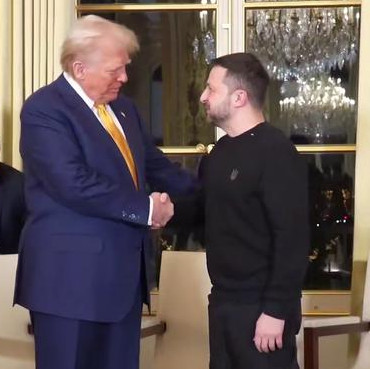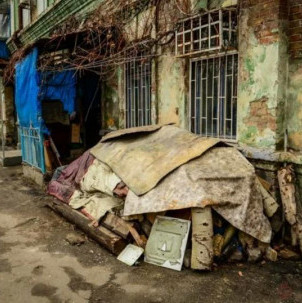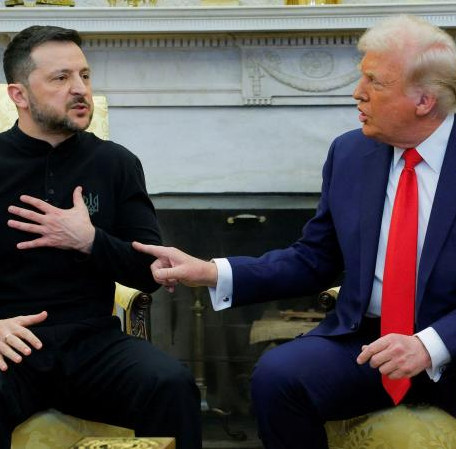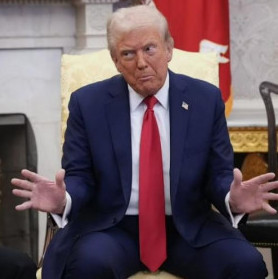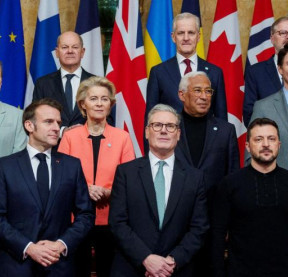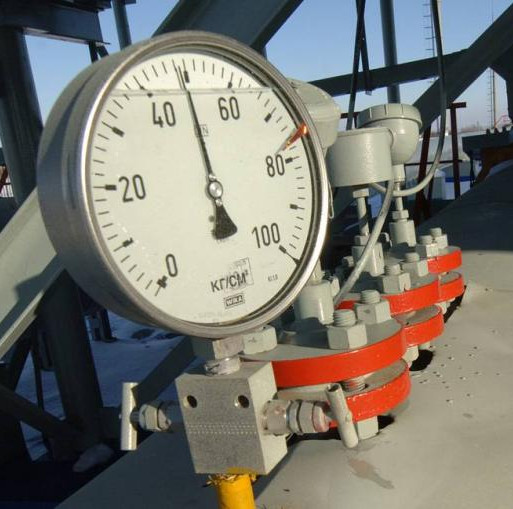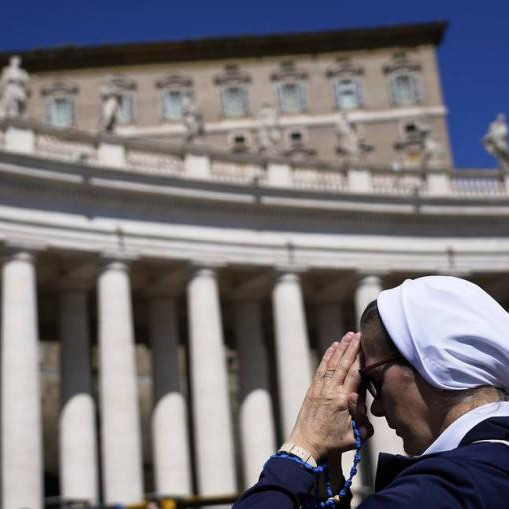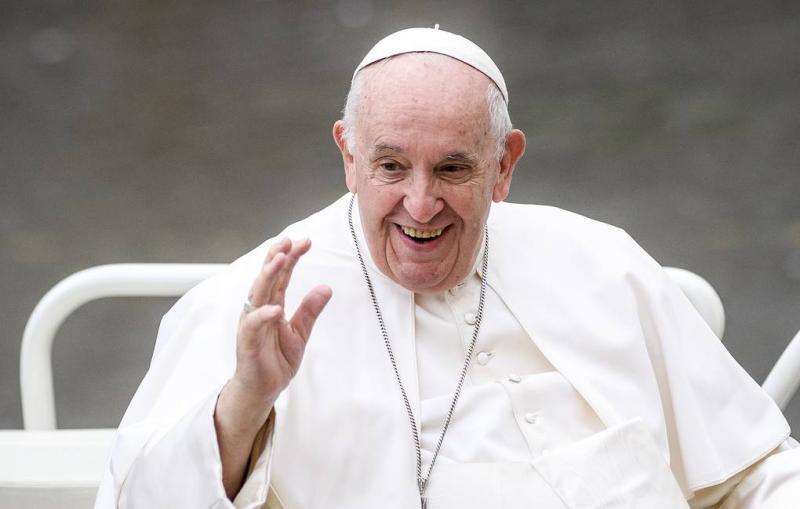
Donald Trump’s special envoy may help move Ukraine closer to a ceasefire; Pope Francis’ passing could impact the Vatican’s policies; and Moscow may join trans-Afghan projects following the suspension of the Taliban ban. These stories have topped Tuesday’s newspaper headlines across Russia, according to TASS news agency.
Media: Trump’s special envoy may bring Ukraine closer to ceasefire
Russia is positive about peace initiatives and anticipates Kiev will adopt a similar stance, President Vladimir Putin said. He emphasized that the Ukrainian army had scaled down its combat activity during the 30-hour Easter ceasefire, even though it still carried out almost 5,000 violations, Vedomosti notes.
Meanwhile, the US media report that President Donald Trump’s special envoy Steve Witkoff may travel to Moscow after a London meeting with Ukrainian and European delegations later this week. Witkoff last visited Russia on April 11, when he met with Putin and conversed with him for about five hours.
The US is attempting to forge a compromise and define the limits, Dmitry Novikov, associate professor and head of the Laboratory of Political Geography and Modern Geopolitics at the Higher School of Economics, said. "The process has taken the form of itinerant diplomacy," he pointed out. Witkoff will certainly travel to Russia to discuss the results of the Paris and London talks, Alexey Naumov, author of the VneshPol Telegram channel on foreign policy issues, remarked. According to the expert, an agreement is being cautiously shaped at the moment. If the contours of the deal suit both parties, a pause in military operations can be expected.
In the current environment, the Ukrainian conflict is diverting Trump "from the domestic political and economic challenges that are more pressing," American historian and former Harvard University professor Vladimir Brovkin told Izvestia. "He will not request more funding from the Congress to prolong the conflict. The US is on the brink of a recession and even depression unless he resolves issues with China promptly. I think Trump is prepared to make territorial concessions and has already accepted a neutral status for Ukraine. However, he cannot assure that the Europeans will follow suit," the expert elaborated.
European countries such as France, Germany and the United Kingdom continue to escalate their bellicose rhetoric. Still, the European Union lacks the resources to substitute US aid for Ukraine, Brovkin concluded.
Media: Vatican faces need to reconcile liberal, conservative camps as Pope Francis dies
Pope Francis passed away on April 21 at the age of 88. The day before his death, on Easter Sunday, he made his first public appearance after being released from the hospital on March 23. Russian President Vladimir Putin expressed his condolences over the pontiff’s passing, noting that Pope Francis had worked to encourage dialogue between the Catholic Church and the Russian Orthodox Church, Vedomosti reports.
Francis was an unconventional pope as he openly voiced his views on topics considered delicate for the church, such as LGBT rights, the status of women in the Catholic Church, and divorces, Roman Lukin, head of the Center for the Study of Problems of Religion and Society at the Russian Academy of Sciences’ Institute of Europe, noted. In addition, according to the expert, the pontiff championed a socially oriented policy and consistently denounced European populists and proponents of militarization. Lukin believes a figure with centrist leanings is expected to become the next pope, who will need to bridge the liberal and conservative camps. The Vatican will likely maintain its course of measured reform, aligning the faith with the demands of the modern world, including matters related to gender, the expert said.
Yelena Maslova, associate professor with the Department of Integration Processes at Moscow State Institute of International Relations, told Izvestia that Francis had created a revolution in the Papacy. "He could be referred to as ‘the people’s pope," as he renounced many privileges. This approach resonated with the public, though it displeased the Roman Curia. Members of the Curia viewed it as an unacceptable reduction of both the pope’s and their own authority. Reforms were a permanent feature of Pope Francis’ leadership, aimed at restructuring the Roman Curia and overhauling the Vatican’s finances, long entangled in scandals," the expert observed.
Regarding matters relevant to Russia, the pope strove to maintain a fair-minded stance, said Alexey Zudin, senior lecturer with the Department of Comparative Political Science at Moscow State Institute of International Relations. "Amid widespread Russophobia and pro-Ukrainian messaging pushed by Western leaders and media, he bravely condemned the repression of the Russian Orthodox Church in Ukraine," the analyst added.
Izvestia: Moscow may join trans-Afghan ventures after pausing Taliban ban
The Russian Supreme Court’s decision to suspend a ban on the Taliban movement signals a new phase in political developments across the region. Specifically, it opens the door for Moscow to participate in major regional ventures, including the Turkmenistan-Afghanistan-Pakistan-India (TAPI) Gas Pipeline and the Trans-Afghan Railway, Izvestia writes.
Omar Nessar, a researcher at the Russian Academy of Sciences’ Institute of Oriental Studies, notes that Moscow and the Taliban are also strengthening cooperation in counterterrorism efforts. According to him, the Taliban actively oppose the Islamic State terrorist organization, which is outlawed in Russia. "Both parties share an interest in neutralizing the threats posed by international terrorist networks, as well as in bringing stability to the region," the political scientist explained.
Three challenges stand out in the current environment, said Alexey Kupriyanov, head of the South Asia and Pacific Region Group at the Russian Academy of Sciences’ Institute of World Economy and International Relations. "The first issue is purely technical. Constructing pipelines through mountainous terrain demands extensive funding and labor. Before becoming involved, Russia needs to assess what objectives it serves, and what benefits or risks are involved," the expert noted.
According to him, the second challenge lies in the uncertainty surrounding Afghanistan’s long-term stability. Lastly, the third concern involves strained ties between India and Pakistan. Even if their relationship improves, India is unlikely to rely on TAPI as its primary gas supply route, the analyst elaborated.
Kazakh-German University Professor Rustam Burnashev stresses that the Russian Supreme Court’s step to pause the Taliban ban clearly shows Moscow has acknowledged "the objective circumstances of recent years." "In my view, this paves the way for Russia to take a more proactive role in the so-called trans-Afghan initiatives. For Central Asian states, it serves as added motivation to launch these projects," the expert concluded.
Vedomosti: Europe pays higher gas import costs than Asia
Europe’s average natural gas cost was about $14 greater per 1,000 cubic meters than Asian rates, Vedomosti reports, citing figures from the International Energy Agency (IEA). This indicates that the so-called Asian price premium - where fuel prices exceeded those in Europe - vanished from the market at the start of the year. The last instance of this scenario was during Europe’s energy turmoil between April 2022 and May 2023.
According to IEA projections, the price premium has shifted to Europe due to decreased Russian and Norwegian pipeline gas deliveries to the EU and a sharp drop in fuel inventories in European underground storage facilities during the autumn and winter period. This is what prompted a surge in the region’s import of higher-cost liquefied natural gas (LNG).
In a context where Russian gas transit through Ukraine has ceased and supply options are constrained for other providers, particularly Norway and Algeria, shipping LNG effectively remains the sole method for Europe to restore its underground storage reserves, Finam analyst Sergey Kaufman stated. European importers are required to spend more to obtain additional LNG volumes, which is what triggered the European price premium at the beginning of the year, he clarified.
The volume of LNG deliveries to the EU will stay elevated in the upcoming months as European nations seek to rebuild the inventories at their underground sites, said Kaufman and Igor Yushkov, a specialist at the Financial University under the Government of the Russian Federation. According to Yushkov, demand will be particularly strong in the third quarter of the year, when fuel use is expected to increase due to intense heat.
Andrey Polishchuk, senior analyst at Eiler Analytical Technologies, supports the projection for the rise in EU gas prices this year. Nevertheless, he notes that over the longer term, the LNG price premium will persist in the Asian market due to the region’s accelerating demand expansion.
Rossiyskaya Gazeta: Soaring gold prices lift silver value
The price of silver, the second most sought-after precious metal, is actively climbing as the number one noble metal, gold, has been setting one price record after another in recent months, Rossiyskaya Gazeta notes.
Silver prices have reached the highest level in more than ten years and are likely to rise further. The gold price has broken another record, passing the $3,400 mark per troy ounce, making a number of international experts assume that silver also has good potential for growth.
Silver has always mirrored gold’s trends, but the range of fluctuations in its prices is higher, Kirill Seleznyov, stock market expert at Garda Capital, said. "The reason is that silver is both a precious and industrial metal (it is particularly used in electronics, alternative energy and medicine - Rossiyskaya Gazeta). Silver can only partially replace gold for investors but it is also considered a commodity. As a result, its prices may grow more than gold rates but they are also more susceptible to drop," he explained.
"In 2025, silver prices are supported by expectations of stronger industrial demand, particularly in the sector of renewable energy sources, the recovery in demand on the Indian market, and the forecasts for ongoing supply shortages," Marina Nikishova, chief economist at Zenit Bank, pointed out. In such a situation, global silver price growth may gain momentum in the second half of the year.
Investing in silver makes sense in unstable times but investors need to take its high volatility into account, Freedom Finance Global analyst Vladimir Chernov stressed. Private investors in Russia may find silver to be an interesting tool, especially because of restrictions on foreign currency purchases and access to international markets.
TASS is not responsible for the material quoted in these press reviews
